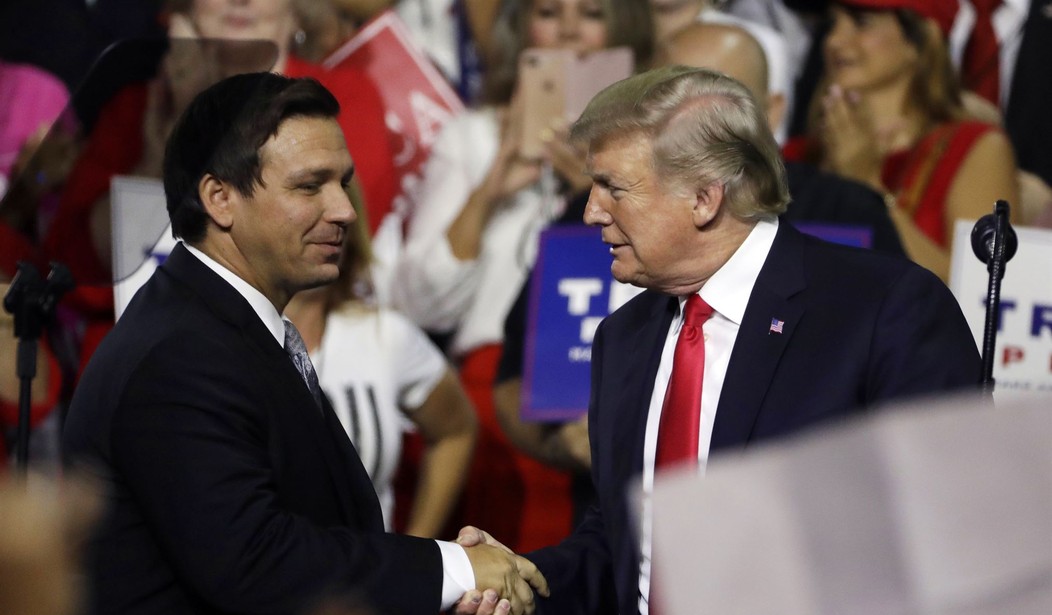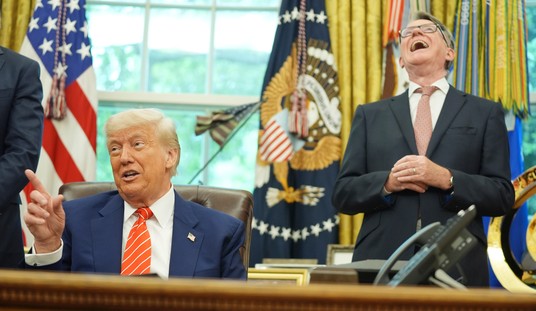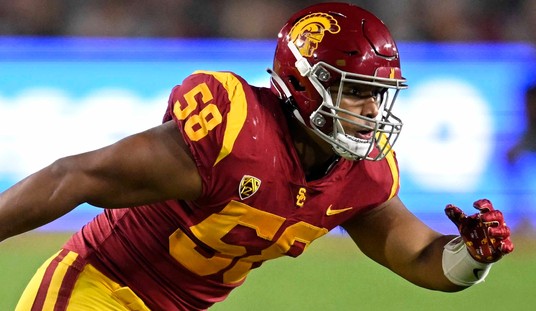Whether you’re a dedicated Trump supporter eagerly waiting to vote for him again or a Republican looking for an alternative candidate, you can’t deny that Trump is aware that Florida Gov. Ron DeSantis is a threat.
Sure, national polls clearly favor Trump. In fact, a recent poll from Morning Consult indicates that Trump’s lead over DeSantis has expanded recently as GOP voters have coalesced behind Trump in light of the looming charges from a partisan, George Soros-funded district attorney in New York.
The poll found that 54% of potential primary voters support Trump, while only 26% are backing DeSantis, which is tied with his lowest level of support since tracking began in December. So, it sure looks like Trump is cruising to the nomination, right? Don’t start betting on it yet. Here’s why.
Axios has exclusively obtained two new polls from a leading Republican polling firm indicating that DeSantis is performing better against former President Trump in the states of Iowa and New Hampshire than in national surveys.
Related: What Really Concerns Me About 2024 (and Should Concern You, Too)
“The surveys, conducted by Public Opinion Strategies from March 21 to 23 for an outside client (not a candidate or super PAC) found DeSantis leading Trump by eight points (45%-37%) in a head-to-head matchup in Iowa and tied with Trump (39%-39%) in New Hampshire,” Axios explains. “In a more crowded field including Nikki Haley and Vivek Ramaswamy, DeSantis was tied with Trump in Iowa and trailed him by 12 points in New Hampshire.”
There’s no denying that national polling looks good for Trump. But these state polls suggest that DeSantis is performing better in the early primary states, which has the potential to change the trajectory of a primary campaign.
Research conducted by economist Brian Knight from Brown University in 2011 suggests that voters in states with early primary races, like Iowa and New Hampshire, hold up to five times the influence in selecting presidential candidates compared to voters in later states.
For example, in the 2004 U.S. presidential election, former Vermont Gov. Howard Dean appeared to be the front-runner for the Democratic nomination. He had raised record amounts of money and built an impressive and enthusiastic grassroots campaign. However, everything changed after the Iowa caucuses in January of that year. Sen. John Kerry of Massachusetts unexpectedly won the caucuses. I remember watching them on TV and seeing Iowa Democrats voting based on who they thought had the best chance to defeat President George W. Bush. Winning Iowa gave Kerry momentum; Democrat voters rallied behind him, and he eventually won the Democratic nomination.
While there are cases where Iowa didn’t predict the eventual nominee, like when Pete Buttigieg won the Iowa caucuses in 2020, there are also instances where candidates rebounded from Iowa. Ted Cruz narrowly won Iowa in 2016, but Trump won a landslide in New Hampshire before winning the nomination. Similarly, in 2020, Joe Biden lost Iowa and New Hampshire but secured a commanding victory in South Carolina, propelling him to the Democratic nomination.
So, yeah, early states matter. Let’s not pretend that they don’t. Trump can boast about leading national polls all he wants, but he knows it’s not a guarantee that he’ll snag the nomination if DeSantis runs—which it looks like he will.










